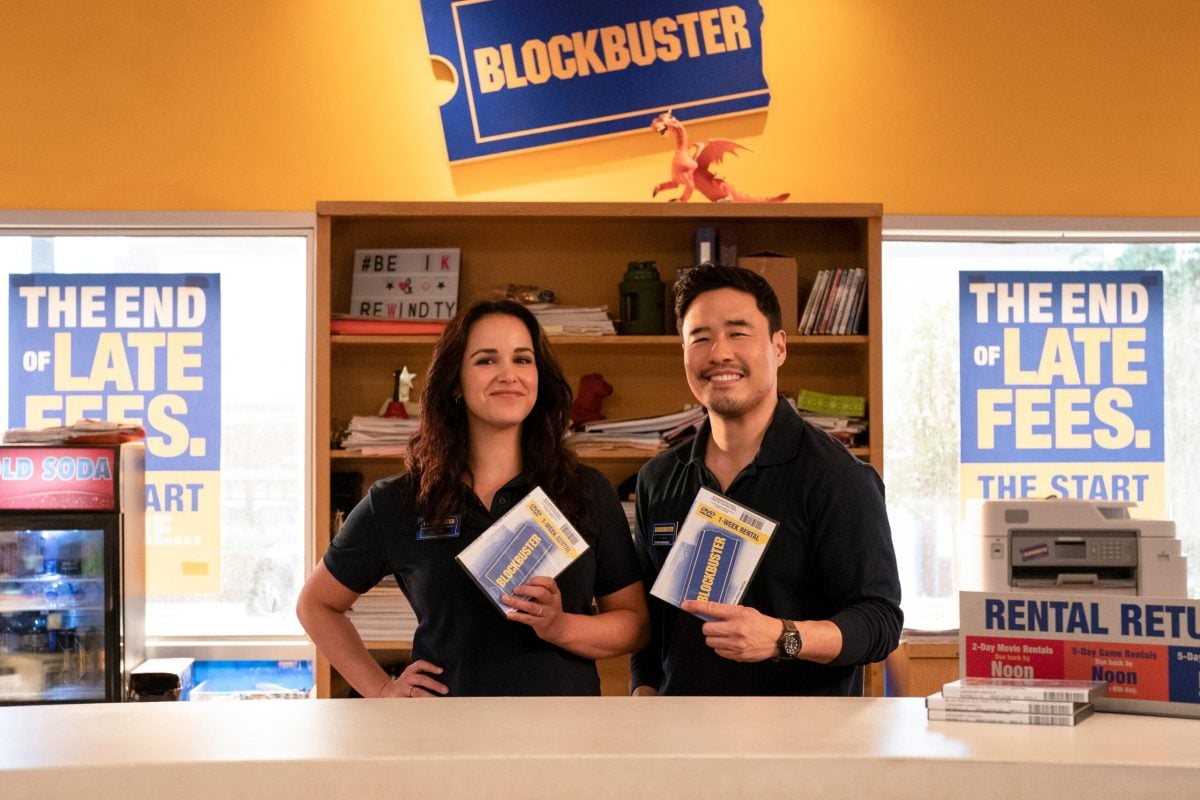Netflix is apparently missing the irony of airing a show about the very company they largely put out of business.
Netflix’s upcoming workplace comedy series has raised the ire of social media. When the company tweeted photos for the upcoming Blockbuster, Twitter had much to say to the streaming giant that directly caused the video chain’s downfall.
Aptly named Blockbuster, the series stars Randall Park (Ant-Man and the Wasp, WandaVision) and Melissa Fumero (Brooklyn Nine-Nine) as the owners of the last brick and mortar Blockbuster franchise in operation. Netflix seemingly is oblivious to the mordancy of the plot, which revolves around the couple struggling to keep the doors open while the rise of mail-in video rental services and streaming whittle away at the store’s customer base.
When Netflix first launched in 1998 with some 900 titles, it was the first national mail-in video rental service. As the site became more popular, their number of titles would quickly expand, and soon they were the go-to video rental company. Blockbuster’s executives saw their revenue dwindling, so they attempted a hybrid brick-and-mortar/online rental service of its own. By the time Netflix began offering the first streaming content, the damage had been done. In 2010, Blockbuster declared bankruptcy. Four years later, it was officially closed for business. It wasn’t just Blockbuster that felt the sting of streaming. Netflix put the independent, local video stores out to pasture in the early 2000s as well. Twitter users likened it to beating the proverbial dead horse.
While the corporation was done, a handful of stores across North America forged on. Famously, the last Blockbuster Video store is still open in the town of Bend, Oregon. In fact, it was the subject of a 2020 documentary, The Last Blockbuster, which also happened to air on, you guessed it, Netflix.

